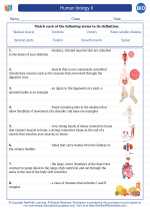Plantae: The Kingdom of Plants
Plantae is one of the five kingdoms in the biological classification system. It includes a wide variety of organisms such as trees, flowers, grasses, and algae. Plants are autotrophic, meaning they can produce their own food through the process of photosynthesis. They are essential for supporting life on Earth as they provide oxygen, food, and habitat for many other organisms.
Characteristics of Plants
- Cellular Structure: Plants are eukaryotic organisms, meaning their cells have a nucleus and membrane-bound organelles.
- Cell Wall: Plant cells have a rigid cell wall composed of cellulose, providing structural support.
- Photosynthesis: Plants contain chlorophyll, a green pigment that allows them to capture sunlight and convert it into energy through photosynthesis.
- Reproduction: Most plants reproduce sexually through the production of seeds, while others reproduce asexually through methods such as budding or fragmentation.
- Adaptations: Plants have evolved various adaptations to survive in different environments, such as roots for anchorage and nutrient absorption, leaves for photosynthesis, and vascular tissues for transport of water and nutrients.
Major Groups of Plants
Plants can be classified into several major groups based on their characteristics, including:
- Bryophytes: These are non-vascular plants such as mosses and liverworts. They lack true roots, stems, and leaves.
- Seedless Vascular Plants: Examples include ferns and horsetails. They have vascular tissues for water and nutrient transport but do not produce seeds.
- Gymnosperms: Gymnosperms, such as conifers and cycads, produce seeds but do not have flowers or fruits.
- Angiosperms: This group includes flowering plants, which produce seeds within a protective ovary. They are the most diverse and widespread group of plants.
Importance of Plants
Plants play a crucial role in the ecosystem and have significant importance to human life in the following ways:
- Oxygen Production: Through photosynthesis, plants release oxygen into the atmosphere, which is essential for aerobic respiration in animals.
- Food Source: Many of our food sources, including fruits, vegetables, grains, and herbs, come from plants.
- Medicinal Value: Numerous pharmaceutical drugs are derived from plant compounds, providing treatments for various illnesses.
- Ecological Balance: Plants contribute to the balance of ecosystems by providing habitats for animals, stabilizing soil, and regulating the climate.
Study Guide
When studying the kingdom Plantae, it's important to focus on the following key concepts:
- Understand the process of photosynthesis and its significance in plant biology.
- Learn the differences between the major groups of plants, including their reproductive strategies and adaptations.
- Explore the economic and ecological importance of plants in human society and the environment.
- Examine the structure and function of plant organs, such as roots, stems, leaves, and flowers.
- Consider the impact of human activities on plant populations and the conservation efforts aimed at protecting plant species.
By mastering these concepts, you'll gain a comprehensive understanding of the diverse and vital kingdom of Plantae.
[Plantae] Related Worksheets and Study Guides:
.◂Biology Worksheets and Study Guides High School. Human biology II
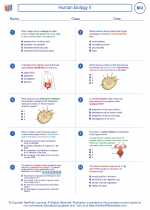
 Worksheet/Answer key
Worksheet/Answer key
 Worksheet/Answer key
Worksheet/Answer key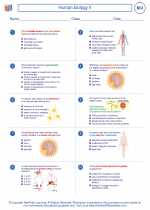
 Vocabulary/Answer key
Vocabulary/Answer key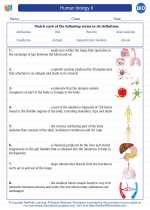
 Vocabulary/Answer key
Vocabulary/Answer key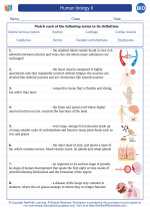
 Vocabulary/Answer key
Vocabulary/Answer key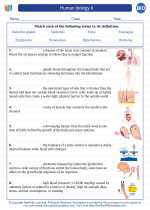
 Vocabulary/Answer key
Vocabulary/Answer key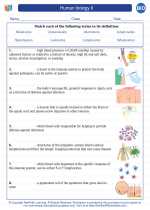
 Vocabulary/Answer key
Vocabulary/Answer key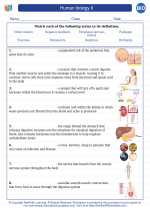
 Vocabulary/Answer key
Vocabulary/Answer key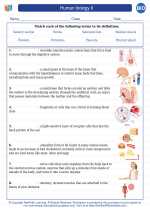
 Vocabulary/Answer key
Vocabulary/Answer key